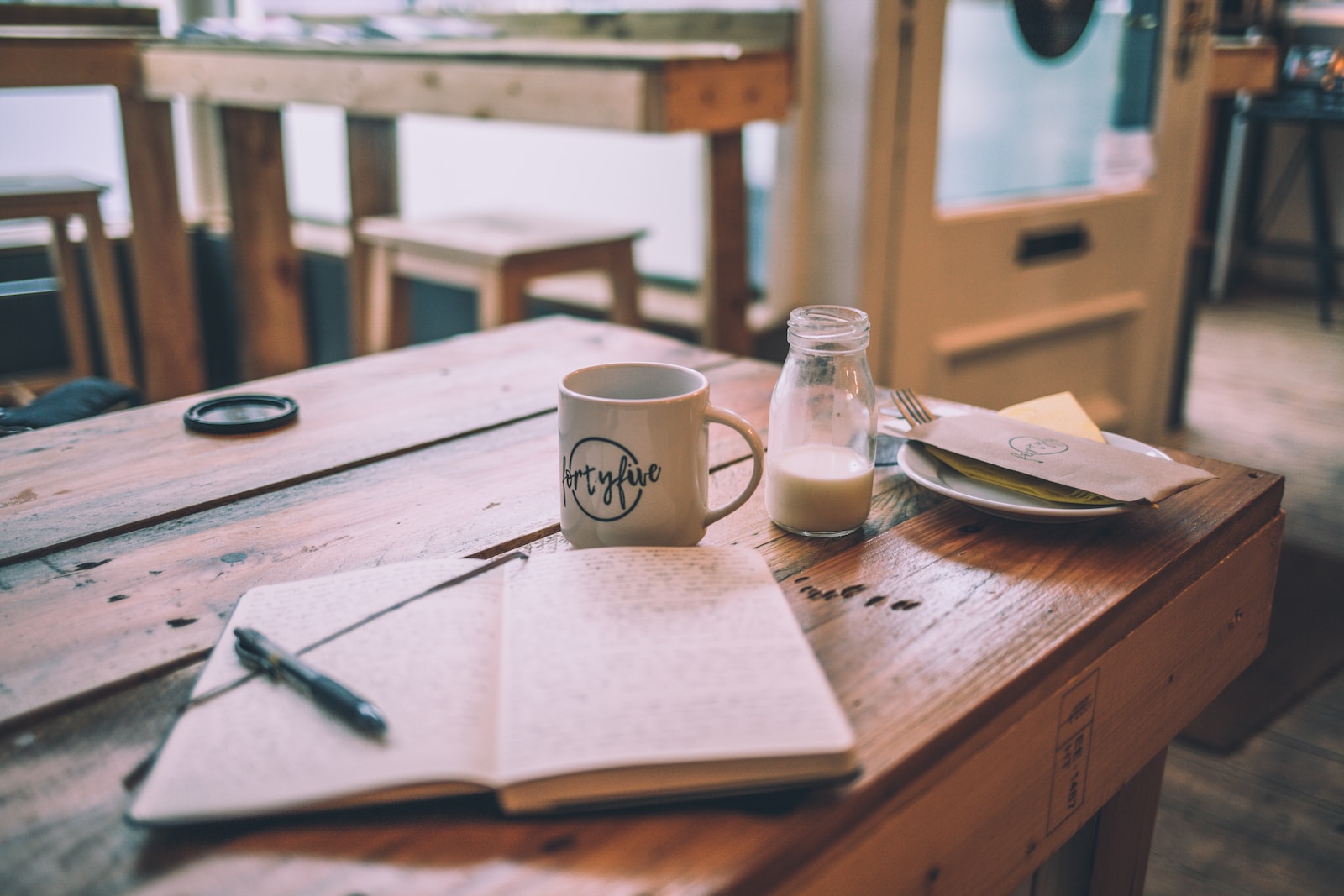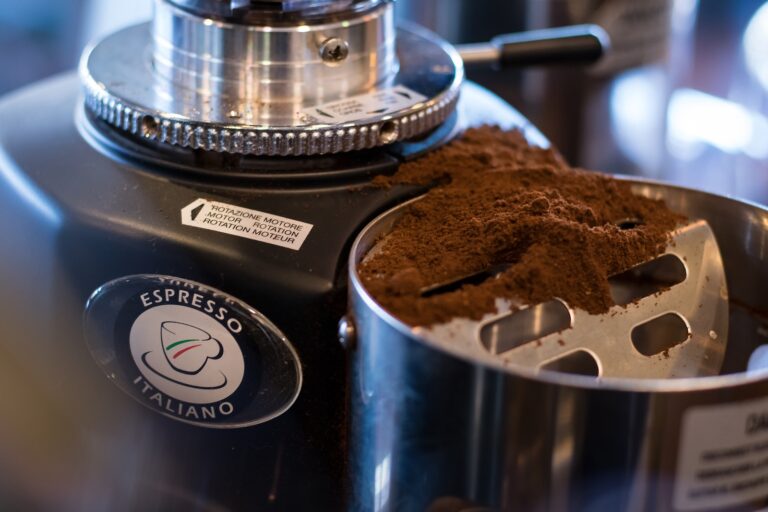Are you a coffee enthusiast who believes that starting your day with a good cup of joe is nothing short of a sacred ritual? Then get ready to embark on an exhilarating journey through the global caffeine-rich world! Join us as we explore the rich cultural traditions and morning rituals surrounding coffee from different corners of the globe.
From Italy’s velvety cappuccinos to Ethiopia’s aromatic jebena brews, this blog post will awaken your senses, ignite curiosity, and inspire you to celebrate the diversity of morning brews around the world. So grab your favorite mug, settle in, and let’s dive into the captivating world where coffee meets culture!
Introduction to the significance of coffee and rituals in different cultures

Coffee has become an integral part of modern society, with its invigorating aroma and stimulating effects. However, coffee is much more than just a morning pick-me-up; it holds significant cultural and ritualistic significance in various societies around the world.
From the daily coffee rituals in Italy to the traditional tea ceremonies in Japan, coffee beans have played a vital role in shaping cultural traditions and social gatherings. In this section, we will take a closer look at some of the most prominent cultures and their unique relationship with coffee.
Italy: The Home of Espresso
It would be impossible to discuss coffee culture without mentioning Italy – the birthplace of espresso. The Italians take their coffee very seriously and have perfected the art of brewing a perfect cup. In fact, “espresso” means “pressed out” in Italian, referring to the concentrated shot of caffeine extracted under high pressure.
In Italy, drinking espresso is not only about satisfying one’s caffeine fix but also about taking a break from the hustle and bustle of daily life. It is customary for Italians to stand at their local café or bar while sipping their espresso quickly before heading back to work. This quick stop for a cup has become an essential part of Italian culture, known as caffè sospeso (suspended coffee). It involves paying for an extra espresso that can be claimed by someone less fortunate later on.
Turkey: A Cup Full of Prophecy
In Turkey, coffee is not only a drink but also a means of divination. The traditional method of brewing Turkish coffee involves boiling finely powdered beans and sugar in a small pot called a cezve. The coffee is then served in special cups without handles, allowing the drinker to hold the warm cup with both hands.
After finishing their coffee, the cup’s leftover grounds are swirled three times and flipped upside down on its saucer to cool. Once cooled, the cup is turned right-side up again, and the patterns formed by the remaining grounds are used to tell fortunes.
Ethiopia: The Birthplace of Coffee
Legend has it that a goat herder from Ethiopia discovered coffee’s stimulating effects when he noticed his goats became hyper after eating wild coffee berries. Since then, Ethiopia has been known as the birthplace of coffee and continues to be one of the world’s top producers.
In Ethiopia, there are many cultural customs surrounding coffee consumption. A traditional Ethiopian coffee ceremony involves roasting and grinding fresh beans in front of guests before brewing them in a jebena (a clay pot) over hot coals. The resulting rich flavor is served in small cups with popcorn as a snack.
Japan: A Ritual of Hospitality
While tea may be the most famous hot beverage in Japan, coffee has also gained popularity in recent years. The Japanese have incorporated their traditional rituals and customs into the coffee-drinking experience.
In Japan, brewing pour-over coffee is considered an art form, known as the “pour-over ceremony.” This method is believed to bring out the best flavors and aromas from the beans. Additionally, serving guests a cup of coffee is seen as a sign of hospitality and respect, making it a crucial element in social gatherings.
History of coffee and its evolution as a morning beverage
Coffee has been a beloved beverage for centuries and has become an integral part of morning routines for many people around the world. Its popularity as a morning beverage can be traced back to its rich history and cultural significance.
The origins of coffee can be traced back to ancient Ethiopia, where legend has it that a goat herder named Kaldi discovered the stimulating effects of coffee beans after his goats became energetic upon eating them. From there, coffee spread throughout the Arabian Peninsula and eventually made its way to Europe in the 16th century. At this time, it was primarily consumed by Sufi monks who believed it kept them alert during their prayers.
As coffee’s popularity grew across Europe, so did its reputation as a morning beverage. In fact, in some cultures such as Austria and France, coffee was often considered a breakfast drink rather than an afternoon pick-me-up. It became closely associated with starting one’s day with renewed energy and focus.
In America, coffee culture was heavily influenced by the arrival of immigrants from different backgrounds. For example, Italian immigrants brought with them traditional espresso-based drinks like cappuccinos and lattes, while Scandinavian immigrants popularized the concept of “coffee breaks” – short pauses during work or school to enjoy a cup of joe together.
Rituals surrounding coffee in various cultures, including brewing methods, serving traditions, and social customs
The act of making and enjoying coffee has evolved into a ritual in many cultures around the world. From the method of brewing to the way it is served, coffee brings people together and plays an important role in daily life. In this section, we will explore how different cultures have embraced coffee as a ritual, each with its own unique traditions and customs.
In Ethiopia, where coffee is said to have originated, the traditional method of brewing is by using a manual ceramic brewing pot called a “jebena”. Coffee beans are first roasted over an open flame before being ground and placed in the jebena along with water.
The pot is then placed on hot coals to brew for several minutes before being poured into small cups called “sini” or “cini”. This traditional way of preparing coffee is often referred to as the Ethiopian Coffee Ceremony and is considered a form of art and social tradition.
In Turkey, coffee beans are finely ground into powder and boiled with sugar in a special pot called “cezve”. It is then poured into small cups known as “fincan” and served alongside a glass of water. What sets Turkish coffee apart from other methods is that it requires time to sit after boiling so that the grounds can settle at the bottom of the cup. This allows for fortune-telling by reading patterns formed by the leftover grounds.
How these rituals contribute to cultural identity and community bonding
Rituals are an integral part of every culture. These traditions and customs not only provide a sense of structure and routine in our daily lives, but they also play a significant role in shaping our cultural identity and fostering community bonding. In this section, we will explore how the various coffee rituals around the world contribute to cultural identity and bring people together.
One of the primary ways in which rituals contribute to cultural identity is by preserving and passing down valuable traditions from one generation to another. Coffee rituals have been passed down through families for centuries, with each culture having its unique method of preparing and consuming this beloved beverage.
For example, in Turkey, coffee is traditionally prepared using finely ground beans boiled in a narrow-necked pot called a cezve, while in Italy, espresso is made using high-pressure machines. These distinct preparations not only showcase diversity within cultures but also serve as symbols of cultural heritage.
Moreover, coffee rituals can also offer insight into different cultural practices and beliefs. In many parts of Africa, such as Ethiopia and Eritrea, coffee ceremonies are considered sacred events that bring communities together in celebration.
The ceremony involves roasting the beans over an open fire, grinding them with a mortar and pestle, brewing them in a traditional clay pot called jebena, and serving the freshly brewed coffee to guests three times. This ritual serves as a symbol of hospitality and respect for elders within these communities.
The science behind the health benefits of coffee and how it affects our mind and body
Coffee is one of the most popular beverages around the world, with an estimated 2.25 billion cups consumed every day. Its rich and complex flavors, along with its energizing effects, make it the perfect early morning pick-me-up. However, there’s more to coffee than just its taste and caffeine content. Coffee also has numerous health benefits that have been backed by science.
Research studies have shown that moderate consumption of coffee (around 3-4 cups per day) can have several positive effects on our mind and body. Let’s delve into some of these benefits and understand the science behind them.
Improved Cognitive Function
One of the most well-known benefits of drinking coffee is its ability to improve cognitive functions such as memory, focus, and alertness. This is due to the caffeine present in coffee which acts as a stimulant for our central nervous system.
When we consume caffeine, it blocks adenosine receptors in our brain, which are responsible for making us feel drowsy. This leads to an increase in neurotransmitters like dopamine and norepinephrine, which improve mood and mental alertness.
Increased Metabolism
Caffeine has also been found to boost our metabolism – the process by which our body converts food into energy. Studies have shown that caffeine can increase metabolic rate by 3-11%, leading to faster calorie burning. Furthermore, the increase in metabolic rate can also help improve physical performance by providing the body with more energy during exercise.
Reduced Risk of Type 2 Diabetes
Several studies have suggested that regular coffee consumption can decrease the risk of developing type 2 diabetes. This is because coffee contains antioxidants and other compounds that help regulate blood sugar levels and increase insulin sensitivity.
A study published in the journal Diabetologia found that people who increased their daily coffee intake by one cup had an 11% lower risk of developing type 2 diabetes. However, it’s worth noting that adding sugar or cream to your coffee can negate these benefits.
Lower Risk of Heart Disease
Coffee has been linked to a lower risk of heart disease and stroke. This is due to its ability to reduce inflammation and boost the antioxidant capacity in our bodies.
A study published in Circulation: Heart Failure found that moderate caffeine consumption (1-2 cups per day) was associated with a lower risk of heart failure compared to no caffeine intake.
Moreover, caffeinated coffee has been found to be more effective than decaffeinated coffee in reducing coronary heart disease risk.
Conclusion
It is clear that coffee plays a significant role in various cultures around the world and has become an essential part of daily rituals. From the flavorful Turkish coffee to the leisurely French café au lait, each country has its unique way of enjoying this beloved beverage.
As we continue to explore new traditions and experience different cultures, let us not forget about the humble origins of our morning brews and appreciate the diverse ways in which it brings people together. So next time you take a sip of your favorite coffee, remember that behind every cup lies a rich history and vibrant culture waiting to be discovered.







